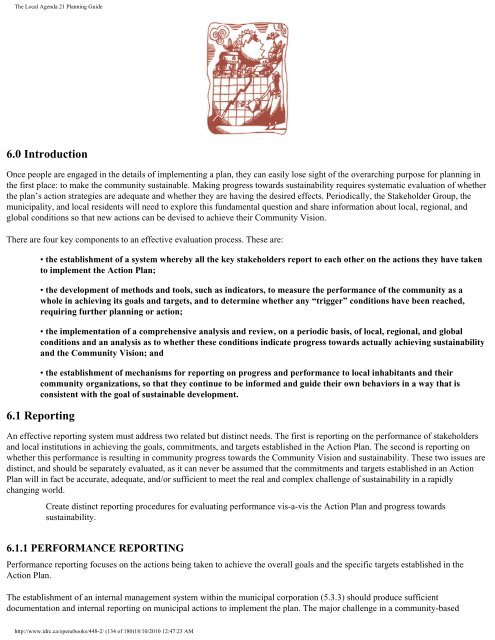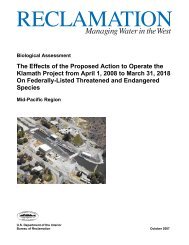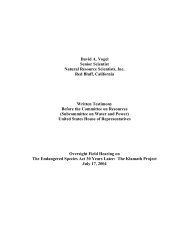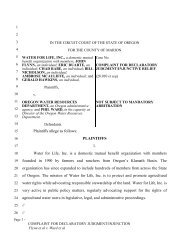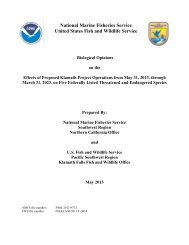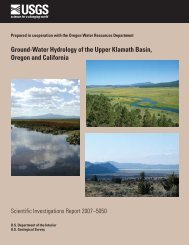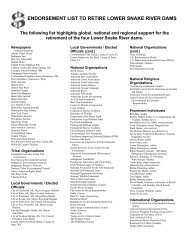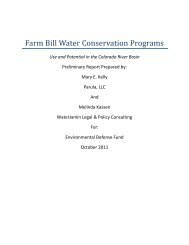The Local Agenda 21 Planning Guide - Democrats Against UN ...
The Local Agenda 21 Planning Guide - Democrats Against UN ...
The Local Agenda 21 Planning Guide - Democrats Against UN ...
Create successful ePaper yourself
Turn your PDF publications into a flip-book with our unique Google optimized e-Paper software.
<strong>The</strong> <strong>Local</strong> <strong>Agenda</strong> <strong>21</strong> <strong>Planning</strong> <strong>Guide</strong><br />
6.0 Introduction<br />
Once people are engaged in the details of implementing a plan, they can easily lose sight of the overarching purpose for planning in<br />
the first place: to make the community sustainable. Making progress towards sustainability requires systematic evaluation of whether<br />
the plan’s action strategies are adequate and whether they are having the desired effects. Periodically, the Stakeholder Group, the<br />
municipality, and local residents will need to explore this fundamental question and share information about local, regional, and<br />
global conditions so that new actions can be devised to achieve their Community Vision.<br />
<strong>The</strong>re are four key components to an effective evaluation process. <strong>The</strong>se are:<br />
• the establishment of a system whereby all the key stakeholders report to each other on the actions they have taken<br />
to implement the Action Plan;<br />
• the development of methods and tools, such as indicators, to measure the performance of the community as a<br />
whole in achieving its goals and targets, and to determine whether any “trigger” conditions have been reached,<br />
requiring further planning or action;<br />
• the implementation of a comprehensive analysis and review, on a periodic basis, of local, regional, and global<br />
conditions and an analysis as to whether these conditions indicate progress towards actually achieving sustainability<br />
and the Community Vision; and<br />
• the establishment of mechanisms for reporting on progress and performance to local inhabitants and their<br />
community organizations, so that they continue to be informed and guide their own behaviors in a way that is<br />
consistent with the goal of sustainable development.<br />
6.1 Reporting<br />
An effective reporting system must address two related but distinct needs. <strong>The</strong> first is reporting on the performance of stakeholders<br />
and local institutions in achieving the goals, commitments, and targets established in the Action Plan. <strong>The</strong> second is reporting on<br />
whether this performance is resulting in community progress towards the Community Vision and sustainability. <strong>The</strong>se two issues are<br />
distinct, and should be separately evaluated, as it can never be assumed that the commitments and targets established in an Action<br />
Plan will in fact be accurate, adequate, and/or sufficient to meet the real and complex challenge of sustainability in a rapidly<br />
changing world.<br />
Create distinct reporting procedures for evaluating performance vis-a-vis the Action Plan and progress towards<br />
sustainability.<br />
6.1.1 PERFORMANCE REPORTING<br />
Performance reporting focuses on the actions being taken to achieve the overall goals and the specific targets established in the<br />
Action Plan.<br />
<strong>The</strong> establishment of an internal management system within the municipal corporation (5.3.3) should produce sufficient<br />
documentation and internal reporting on municipal actions to implement the plan. <strong>The</strong> major challenge in a community-based<br />
http://www.idrc.ca/openebooks/448-2/ (134 of 180)18/10/2010 12:47:23 AM


